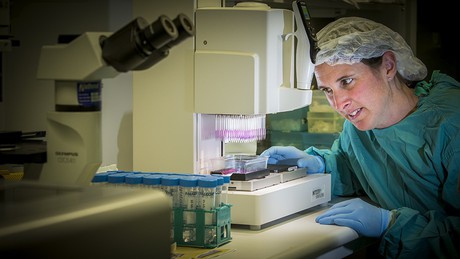The key to fighting sepsis

Australian and US researchers have identified a gene that triggers the inflammatory condition that can lead to the full-body infection sepsis. The gene’s discovery could potentially lead to the development of new treatments for the deadly disease.
Sepsis is a severe whole-body infection that kills thousands of Australians each year. It occurs as a complication to an existing infection and, if not treated quickly, can lead to septic shock and multiple organ failure, with death rates as high as 50%.
Researchers were aware that sepsis occurs when molecules known as lipopolysaccharides (LPS) on the surface of some bacteria infiltrate cells, triggering an immune response that causes the cells to self-destruct. The team discovered that the protein Gasdermin-D played a critical role in this process.
Scientists at US biotech company Genentech showed that Gasdermin-D usually exists in cells in an inactive form. When the LPS molecules enter the cells they trigger an enzyme called caspase-11 — a kind of chemical hatchet — to lop the protective chemical cap off Gasdermin-D, which in turn leads the cells to self-destruct.
Researchers at the Australian Phenomics Facility, located in The John Curtin School of Medical Research at the Australian National University (ANU), proceeded to screen thousands of genes with a large-scale forward genetics discovery platform. In a little over a year, they had isolated the gene that produces Gasdermin-D.
“This finding is a key that could potentially unlock our ability to shut down [sepsis]… before it gets to a life-threatening stage,” said co-author Chris Goodnow from ANU.
“The identification of Gasdermin-D can give us a better understanding not only of lethal sepsis, but also of multiple other inflammatory diseases,” added co-author Dr Nobuhiko Kayagaki, a senior scientist at Genentech.
The study has been published in the journal Nature.
AI-designed DNA switches flip genes on and off
The work creates the opportunity to turn the expression of a gene up or down in just one tissue...
Drug delays tumour growth in models of children's liver cancer
A new drug has been shown to delay the growth of tumours and improve survival in hepatoblastoma,...
Ancient DNA rewrites the stories of those preserved at Pompeii
Researchers have used ancient DNA to challenge long-held assumptions about the inhabitants of...




